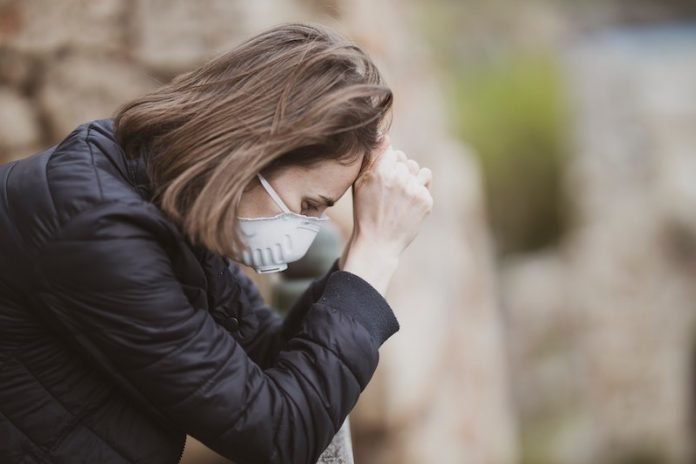
A new study from the University of Florence found that the symptoms connected to long COVID could be different in people who are infected with different variants.
The study was presented at the European Congress of Clinical Microbiology & Infectious Diseases and was conducted by Dr. Michele Spinicci et al.
Estimates suggest that over half of survivors of SARS-CoV-2 infection experience post-acute sequelae of COVID-19 (PASC), more commonly known as long COVID.
The condition can affect anyone—old and young, otherwise healthy, and those with underlying conditions. It has been seen in people who were hospitalized with COVID-19 and those with mild symptoms.
In this study, researchers tested 428 patients, including 254 (59%) men and 174 (41%) women treated between June 2020 and June 2021, when the original form of SARS-CoV-2 and the Alpha variant were circulating in the population.
The patients had been hospitalized with COVID-19 and discharged 4–12 weeks before attending a clinical visit at the outpatient service and completing a questionnaire on persistent symptoms.
At least three-quarters 325/428 (76%) of patients reported at least one persistent symptom.
The most common reported symptoms were shortness of breath (157/428; 37%) and chronic fatigue (156/428; 36%) followed by sleep problems (68/428; 16%), visual problems (55/428; 13%), and brain fog (54/428; 13%).
Analyses suggest that people with more severe forms, who required immunosuppressant drugs such as tocilizumab, were six times as likely to report long COVID symptoms, while those who received high flow oxygen support were 40% more likely to experience ongoing problems.
Women were almost twice as likely to report symptoms of long COVID compared with men.
However, patients with type 2 diabetes seemed to have a lower risk of developing long COVID symptoms.
Researchers then performed a more detailed evaluation comparing the symptoms reported by patients infected between March and December 2020 (when the original SARS-COV-2 was dominant) with those reported by patients infected between January and April 2021 (when Alpha was the dominant variant) and discovered a substantial change in the pattern of neurological and cognitive/emotional problems.
They found that when the Alpha variant was the dominant strain, the prevalence of myalgia (muscle aches and pain), insomnia, brain fog and anxiety/depression significantly increased, while anosmia (loss of smell), dysgeusia (difficulty in swallowing), ad impaired hearing were less common.
The team says many of the symptoms reported in this study have been measured, but this is the first time they have been linked to different COVID-19 variants.
Sign up for our newsletter for more information about this topic.
Recent studies have found how to avoid long COVID, and this drug may relieve painful ‘long covid’ symptoms, which are highly relevant to the current study.
Previous research has found what causes long COVID symptoms.
In a study from UNSW in Australia and published in Nature Immunology, researchers found unvaccinated people with long COVID – even those whose initial infection was mild or moderate – have a sustained inflammatory response for at least eight months following their infection.
They found that there is a strong and sustained inflammation that indicates prolonged activation of the immune system response detectable for at least eight months following initial infection.
This suggests that long COVID is very different from other infections.
In the study, the team examined blood samples from 62 people with and without long COVID for a variety of ‘immune biomarkers’.
They compared these to people who had not had COVID-19 and they found persistently elevated levels of Type I and Type III interferons – types of protein cells make in response to the presence of a virus.
These interferons generally disappear after the infection clears, but in patients with long COVID they found they were present for an extended period.
Approximately 30% of unvaccinated people who contracted COVID and were followed in the study experienced some long COVID symptoms.
The researchers say that understanding the immune profile for long COVID will help the development of treatment and management of long COVID.
This study provides the strongest evidence to date for a clear biological basis for the clinically apparent syndrome of long COVID.
The team says the next steps are to apply this new understanding to other COVID-19 variants, and to further research to inform the treatment and management of long COVID.
If you care about COVID, please read studies about drug duo that may cure COVID-19 together, and this plant extract may help treat COVID-19.
For more information about COVID, please see recent studies about the cause of blood clots in people with severe COVID-19, and results showing coffee and veggies may help prevent COVID-19.
Copyright © 2022 Knowridge Science Report. All rights reserved.



